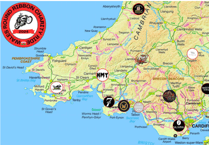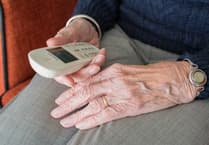Halloween is an exciting time of year for many children and adults. However, for an estimated 50,000 people with dementia in Wales it’s a tradition that could be frightening.
Changes in the home can feel confusing for those with the condition, who sometimes struggle to interpret what is going on around them.
Halloween has changed a lot in recent years with many more scary costumes and activities than there used to be – and this can be truly upsetting if someone doesn’t understand what is happening.
Some people with dementia have difficulty recognising friends and family members, so people wearing Halloween costumes may confuse them further.
Jolian Ardolino, Wales Country Manager at Alzheimer’s Society Cymru, suggests some tips to help make Halloween less daunting for people living with dementia:
If you enjoy Halloween and have a loved one with dementia visiting your home at this time of year, please keep their needs in mind when planning your decorations. A carved pumpkin is harmless, but scary props and noisy decorations designed to startle can be distressing. Aim to keep floors and entranceways clear to avoid trips and falls.
If you’re concerned about a loved one with dementia, try to spend the evening of Halloween with them, or arrange for someone responsible to be with them.
The noise of excited children roaming the streets after dark can feel disorientating. Place a sign on the door asking trick or treaters to skip the house as multiple callers after dark can be stressful, especially unexpected visitors in costumes.
If you have children who are planning to go trick or treating, it’s best to approach nearby households in advance to check they are happy to take part.
Usually households indicate they are happy to be involved in the tradition by displaying a pumpkin, so make sure your children avoid houses without Halloween decorations.
Alzheimer’s Society Country Manager for Wales said: “Have fun this Halloween – but please be respectful of people with dementia and how the unexpected change of routine can be stressful for them.
“Too many people face dementia alone. We want everyone affected by dementia to know that whoever you are, whatever you’re going through, you can turn to Alzheimer’s Society Cymru for practical advice, emotional support, and guidance for the best next step.”
If you’re affected by dementia and need help, call Alzheimer’s Society’s support line on: 0333 150 3456, if you speak Welsh call our Welsh-speaking support line on 03300 947 400, or visit alzheimers.org.uk




